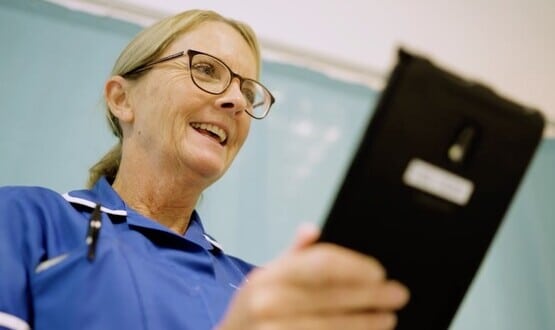Imprivata brings Secure Walk Away to UK
- 4 March 2010
Imprivata, a specialist in single sign-on technology, has launched its OneSign Secure Walk Away technology worldwide.
The technology uses intelligent computer vision technology, active presence detection and user tracking to lock a workstation when the authorised user moves away and then provides instant re-authentication upon their return.
Omar Hussain, president and chief executive of Imprivata, told E-Health Insider: “It doesn’t just provide a solution to a security issue; it’s also address a patient safety issue.
“If one clinician enters patient information and walks away, and then another clinician enters patient information thinking that a different record is open, which happens all the time, then this is a huge patient safety problem.”
The system will also prevent relatives and visitors looking at the screen and seeing personal information if a record is left open.
The product was due for launch in autumn 2009, but was delayed for additional technological capabilities and testing.
“We wanted to get it absolutely right so we spent a while tweaking it to make the usability simple and unobtrusive. Sometimes the most difficult thing is making a product simple,” Hussain added.
The company will market Secure Walk Away as an added feature to its OneSign platform and will bring it to the market predominately through its existing customer base, although some trusts will start using the product directly.
Hussain added: “Our key clients are the people who are providing fast and secure access and the more its in electronic patient record form the more important it becomes. We’ve found that most of the people interested are those actively looking at EPRs.”
Dr Zafar Chaudry, chief information officer at Liverpool Women’s and Alder Hey Children’s NHS foundation frusts, is looking to implement the system following the success of single sign-on.
He said: “OneSign Secure Walk-Away will eradicate the long-standing security problems associated with unattended workstations.
"Its greatest benefit is that it eliminates the possibility of one clinician making changes in our healthcare information systems whilst the workstation is logged in under a different clinician, which can compromise patient safety and security.”
The company is also trialling its PrivacyAlert at a number of sites. This is part of a separate portfolio and is designed to allow trusts to monitor who is accessing information.
“For example, if a nurse usually accesses 20 records a day and then starts accessing a hundred you can see that something is not right. You could say it’s an audit trail, but it’s also integrated with all clinical care and information systems and it uses algorithms for pattern recognition,” Hussain added.
The technology should be available to the wider market next month.




